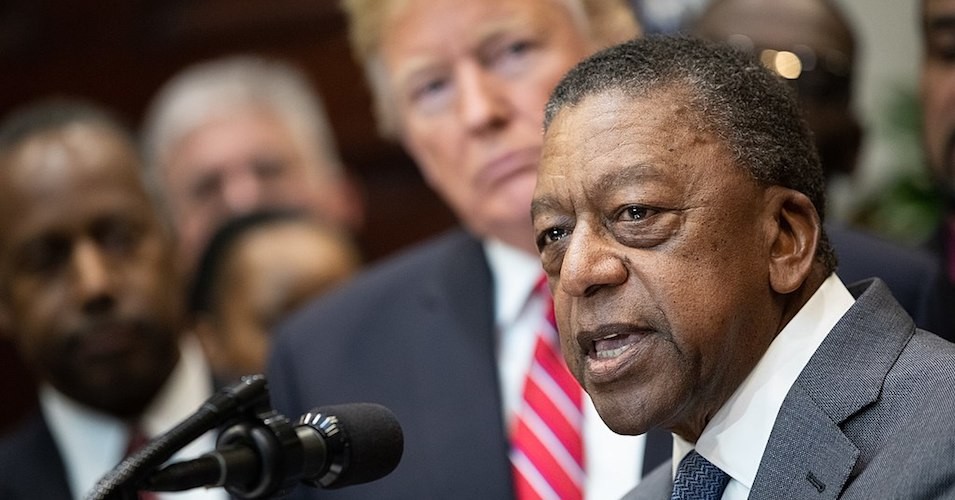
By Tommy Beer
BET founder Robert Johnson argued Monday that “now is the time” for white America to acknowledge damages resulting from slavery, and for the U.S. Government to provide reparations in the sum of a $14 trillion wealth transfer to help prevent the country from splitting into separate and unequal societies.
KEY FACTS
He was interviewed by CNBC on Monday morning, following six nights of protests, largely focused on police brutality, that have ravaged the country.
Johnson told CNBC that “now is the time to go big,” and that the government should pay trillions of dollars for reparations to help reduce racial inequality.
Johnson called reparations the “affirmative action program of all time,” and added that they were so important because it would demonstrate that white Americans acknowledge “damages that are owed” for the injustices created by slavery.
Later Monday morning on CNBC, Merck Chairman and CEO Ken Frazier, who is black, said he was skeptical that a reparations bill would find requisite governmental support.
Johnson became America’s first black billionaire when he sold Black Entertainment Television to Viacom in 2001.
CRITICAL QUOTE:
“Wealth transfer is what’s needed,” Johnson said. “Think about this. Since 200-plus-years or so of slavery, labor taken with no compensation, is a wealth transfer. Denial of access to education, which is a primary driver of accumulation of income and wealth, is a wealth transfer.”
BIG NUMBER:
$153,850. That’s the difference in median net worth between black families ($17,150) and white families ($171,000) in America, according to Federal Reserve data.
KEY BACKGROUND:
Johnson has long been an advocate pf reparations. “I’m not new to this challenge.” He said he’s not advocating “more bureaucratic programs that don’t deliver and don’t perform,” adding “I’m talking about cash. We are a society based on wealth. That’s the foundation of capitalism.” In November of 2019, Leaders of the New Jersey’s Legislative Black Caucus introduced a bill that would establish a Reparations Task Force, which would aim to research the history of slavery within the state, any racial discrimination that stemmed from it, and how the state could help make up for it. According to a Pew Research Center survey conducted last year, 63% of Americans believe the legacy of slavery affects the position of black people in American society today either “a great deal or a fair amount.”
FURTHER READING:
Minority-Owned Small Businesses Struggle To Gain Equal Access To PPP Loan Money (Forbes)
BET founder Robert Johnson calls for $14 trillion of reparations for slavery (CNBC)
Most Americans say the legacy of slavery still affects black people in the U.S. today (Pew)
Get the best of Forbes to your inbox with the latest insights from experts across the globe.
Follow me on Twitter. Send me a secure tip.










